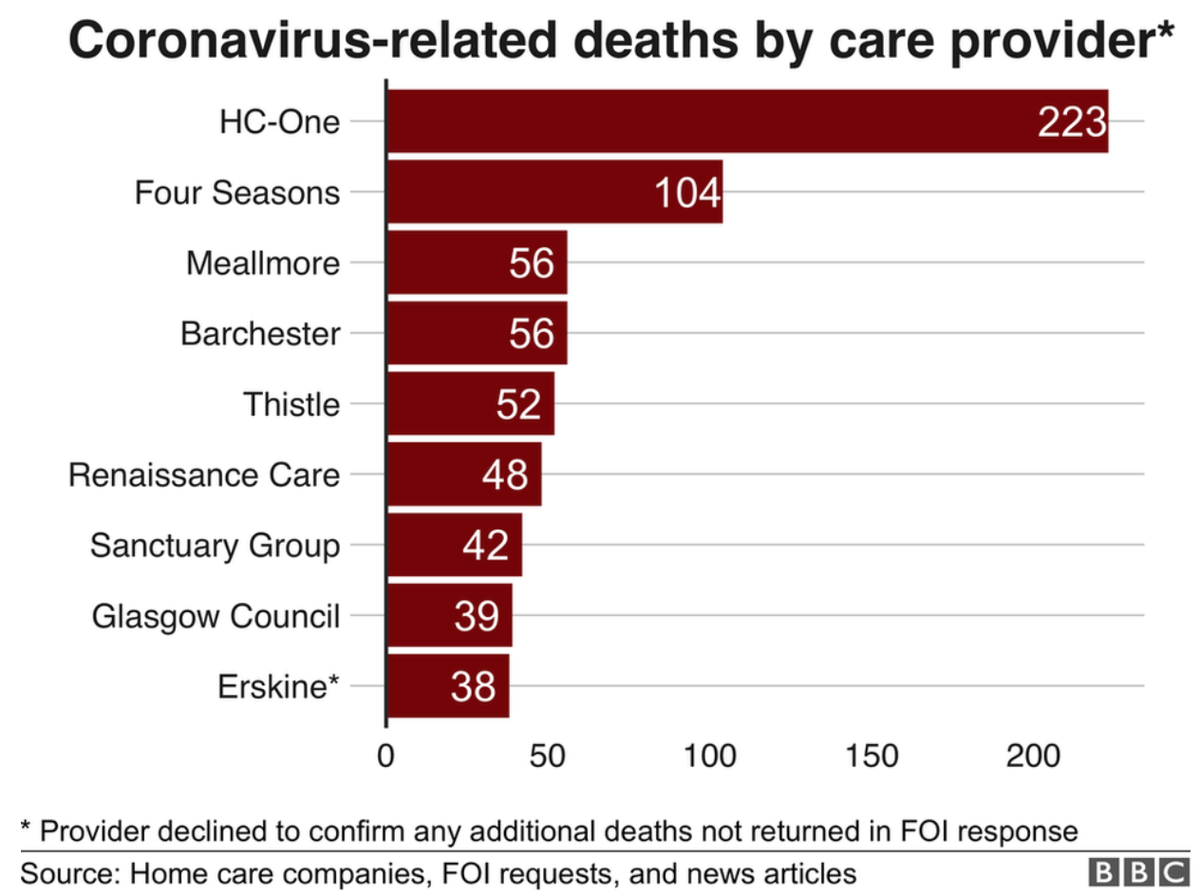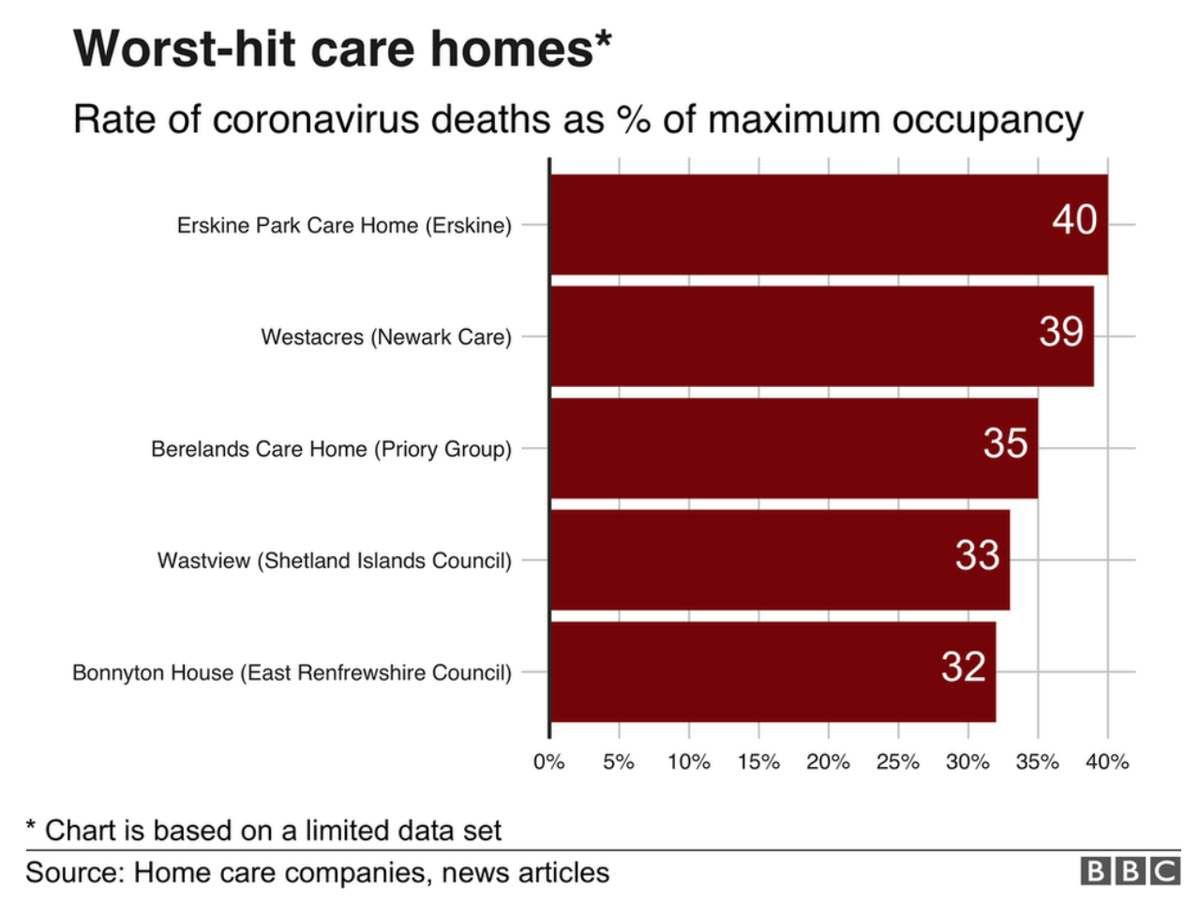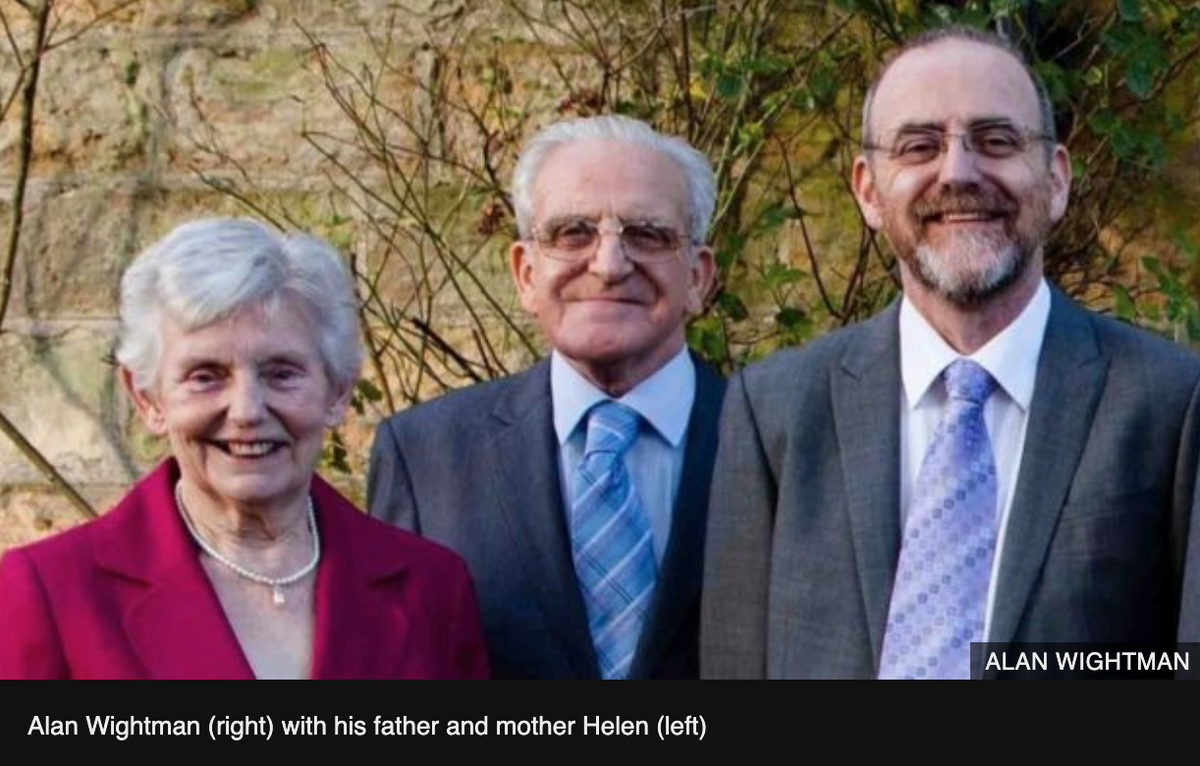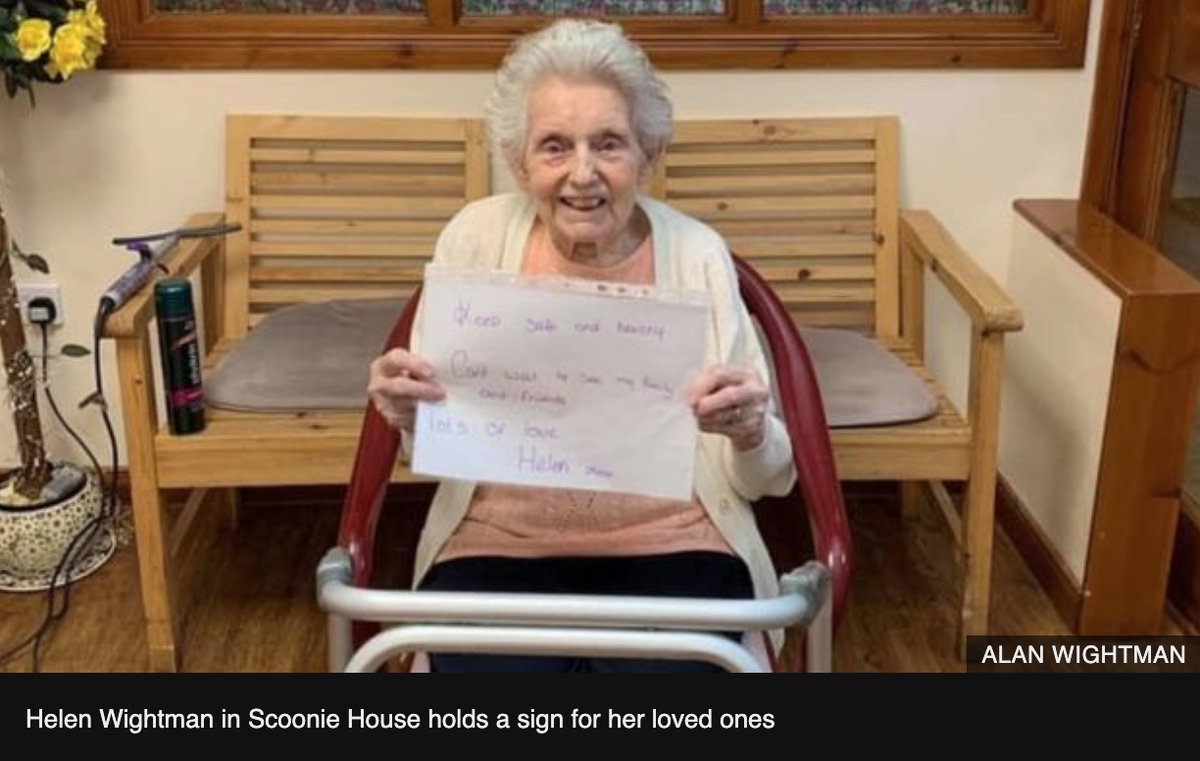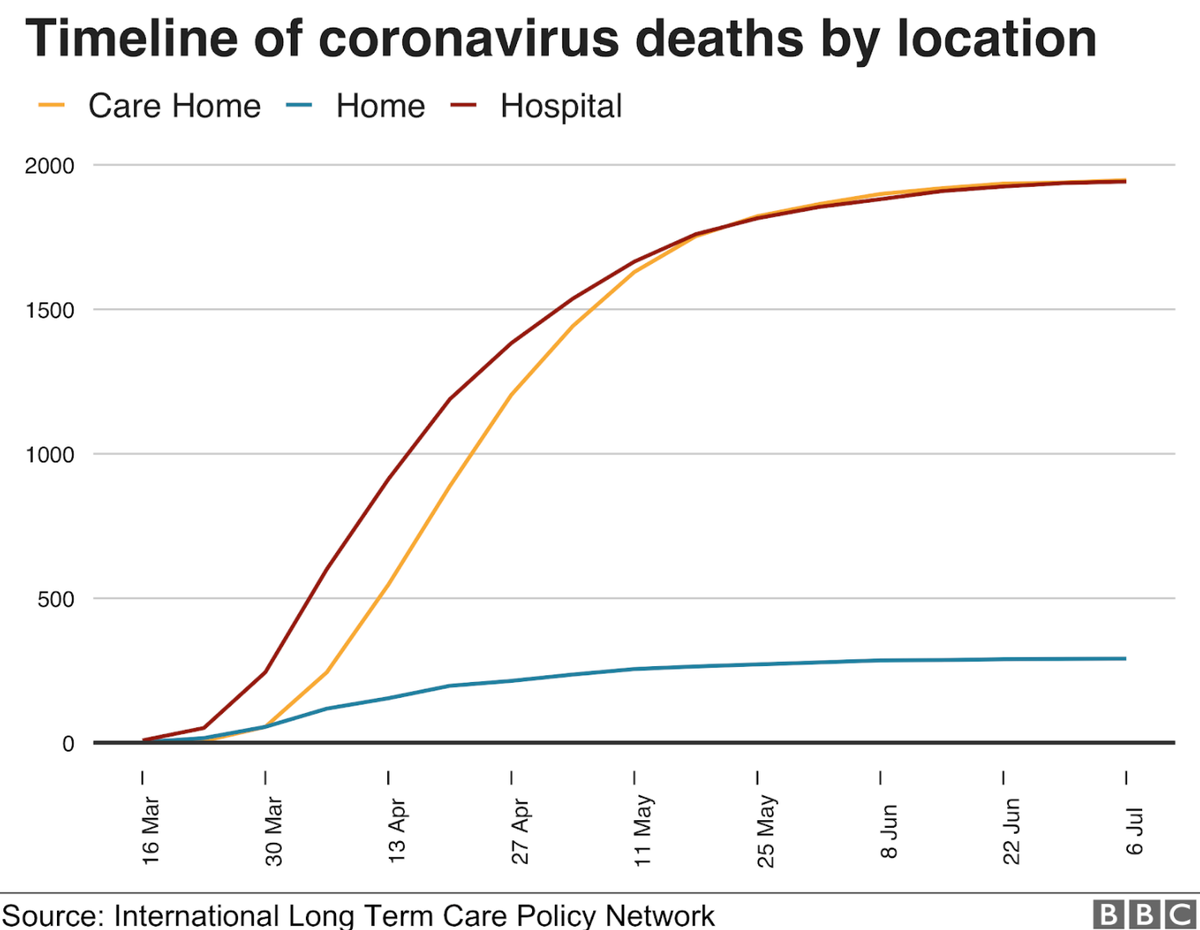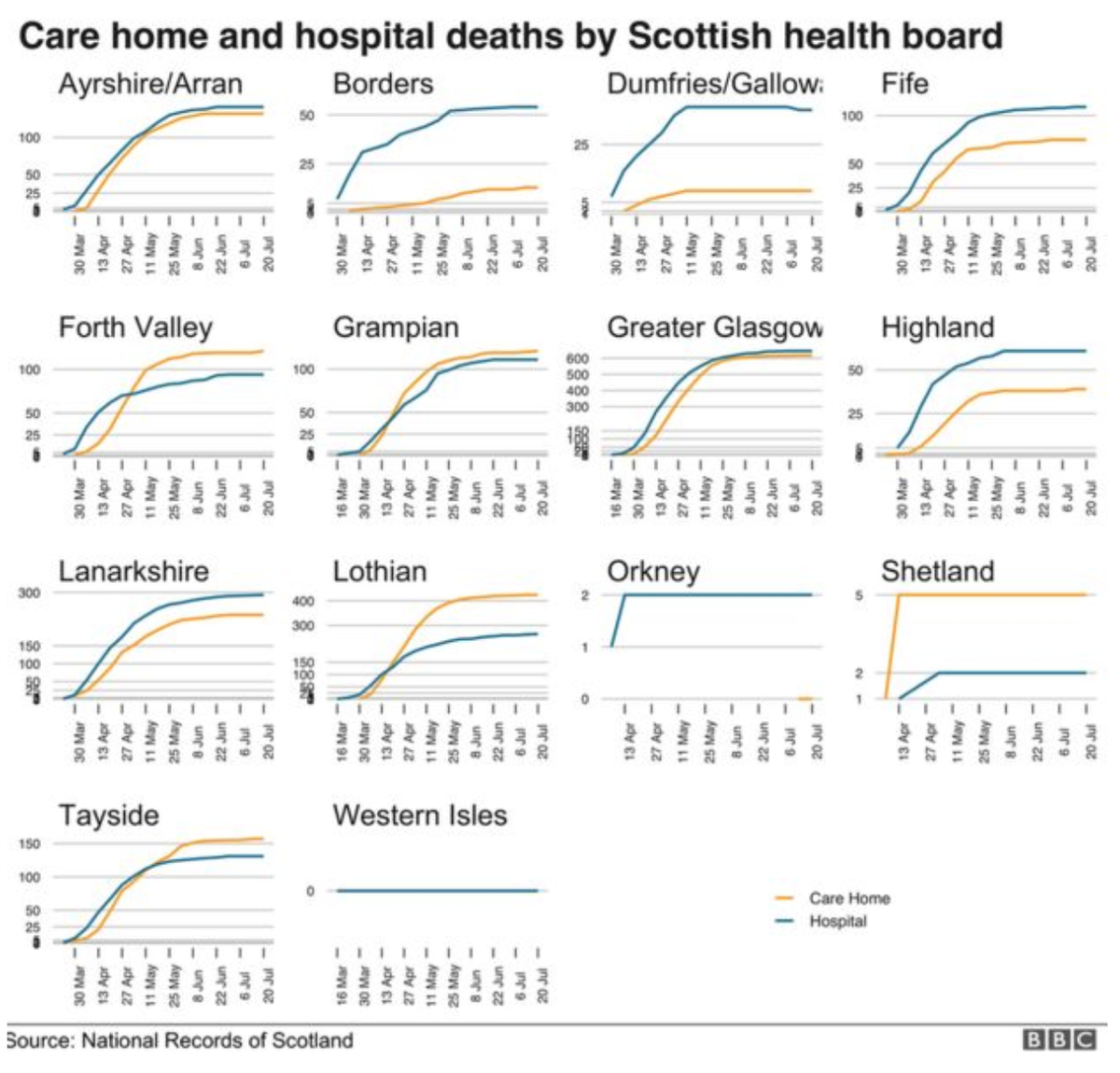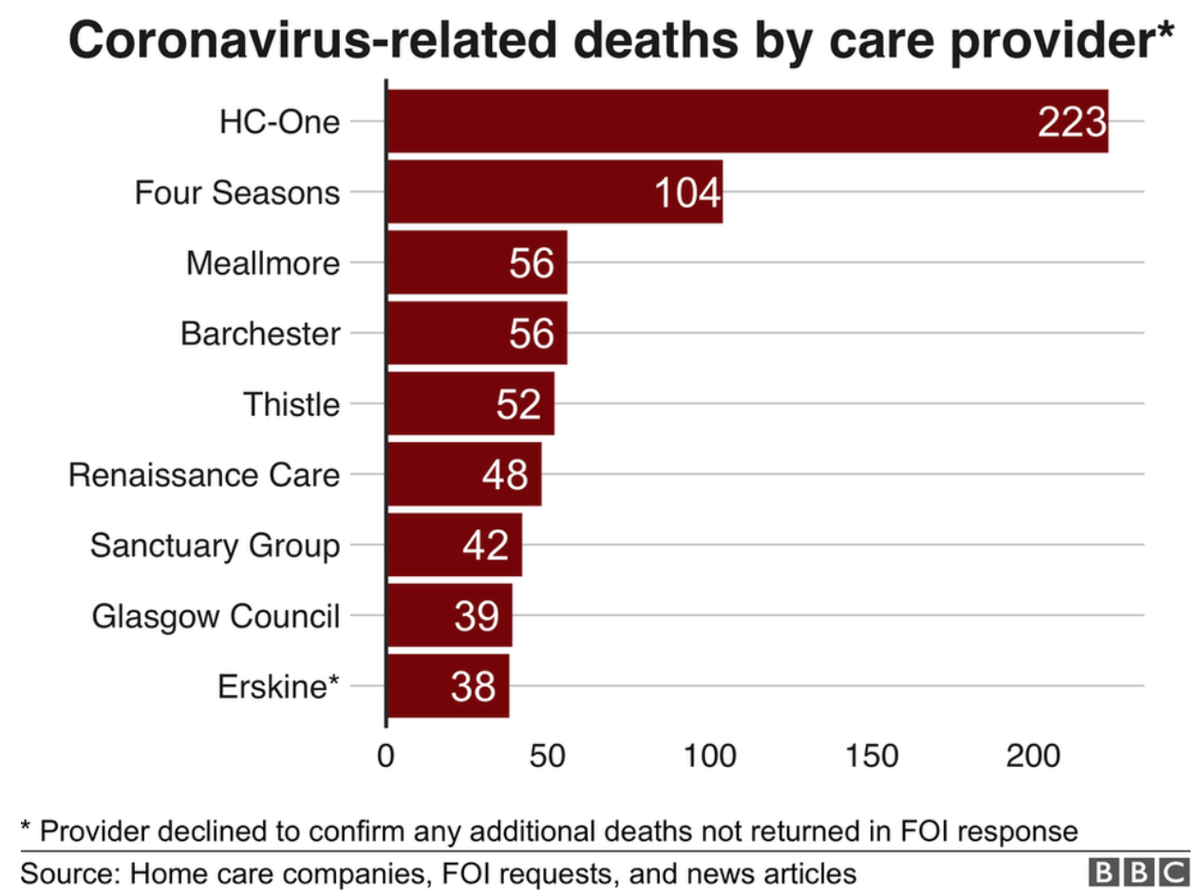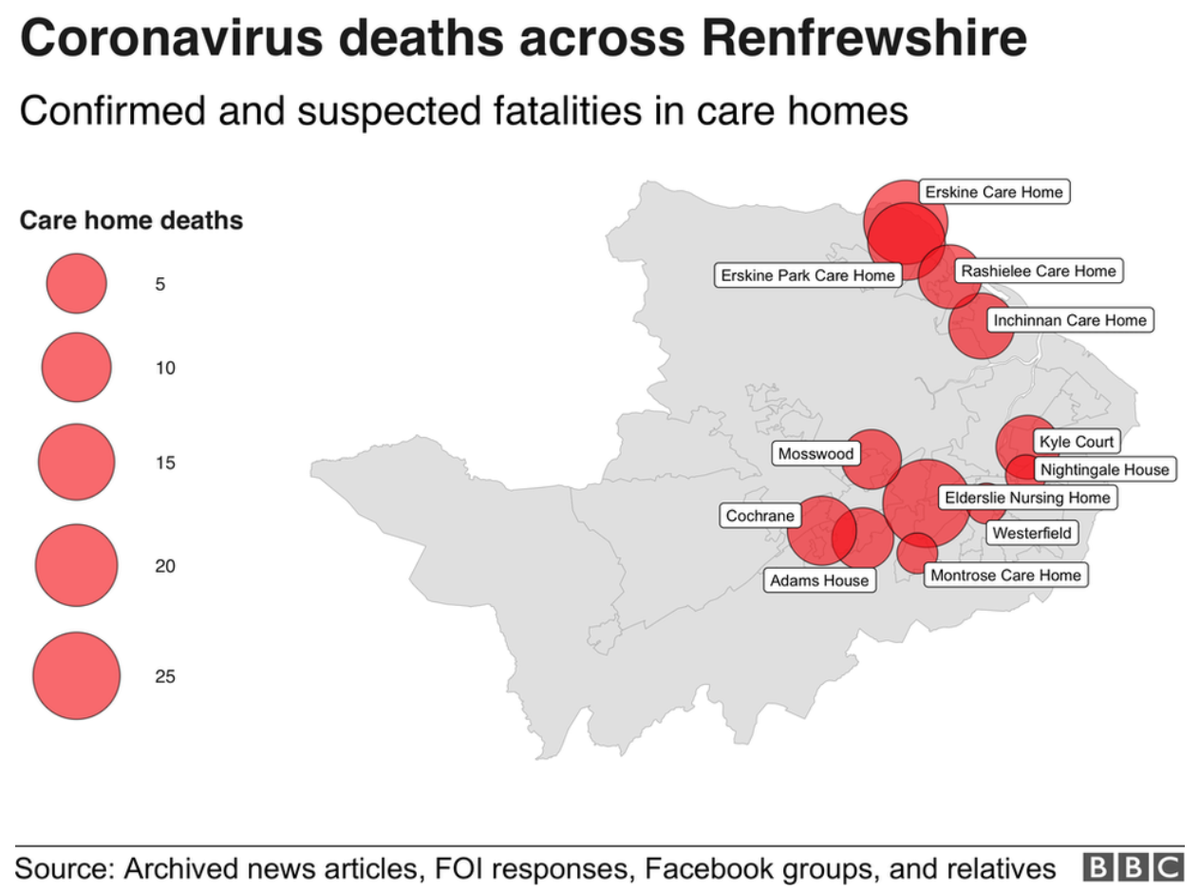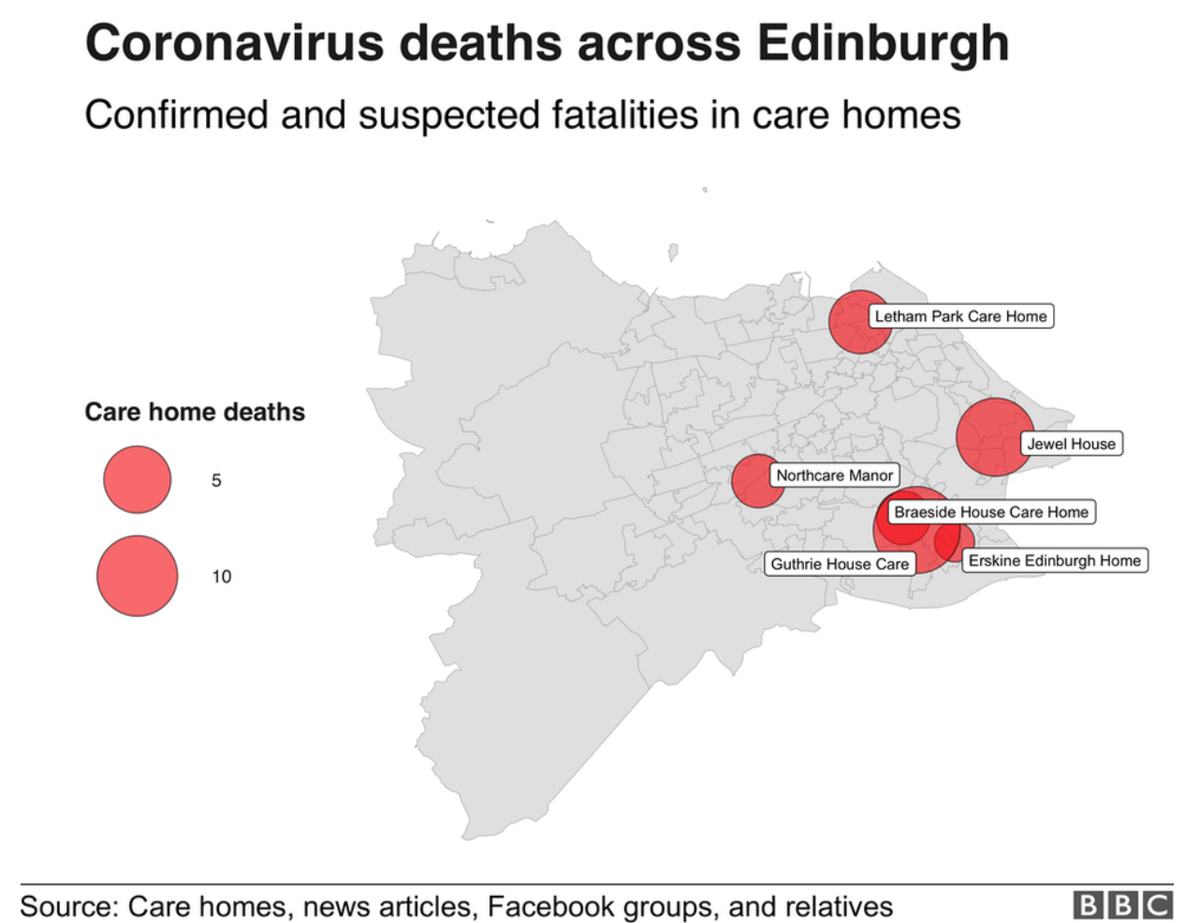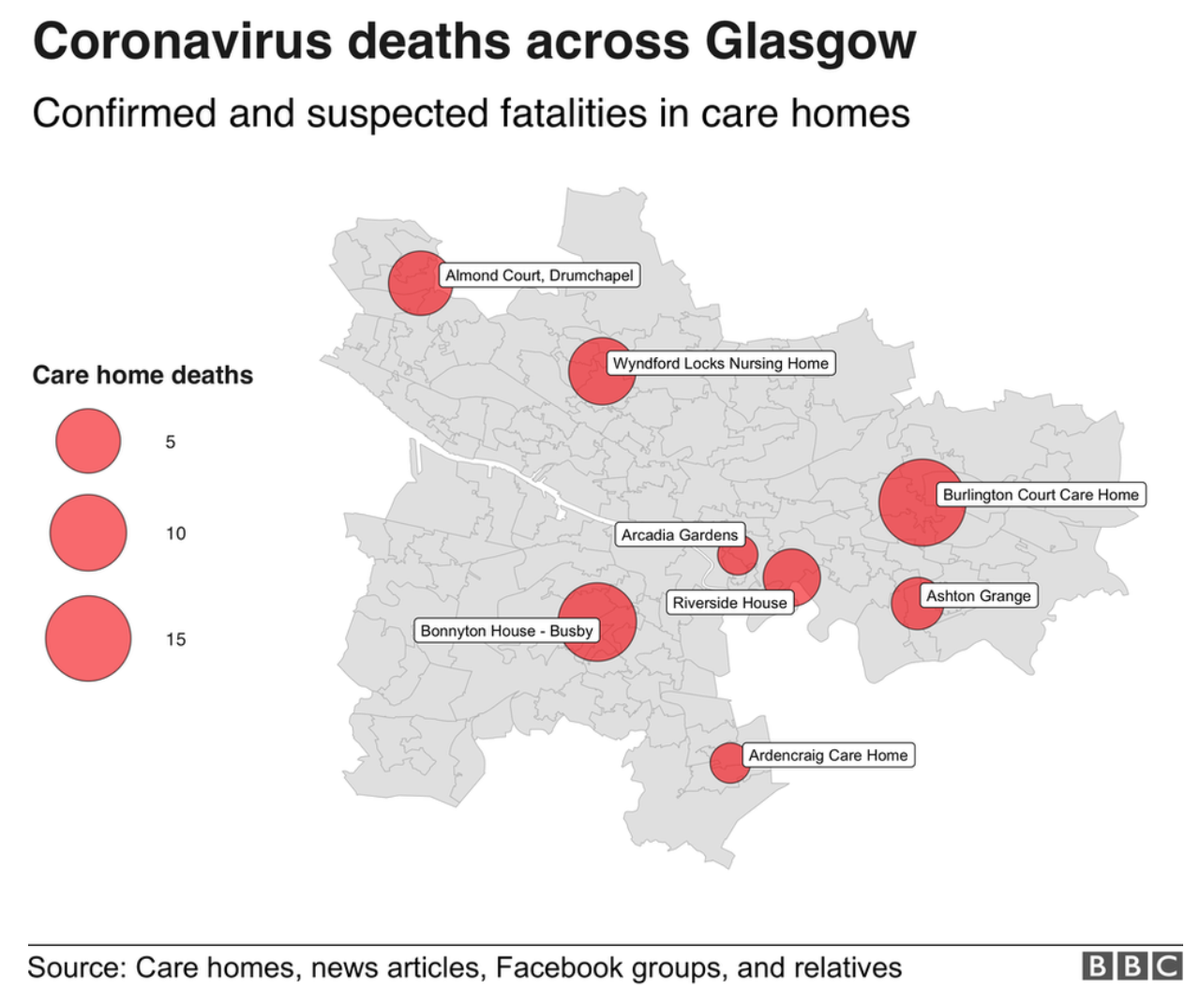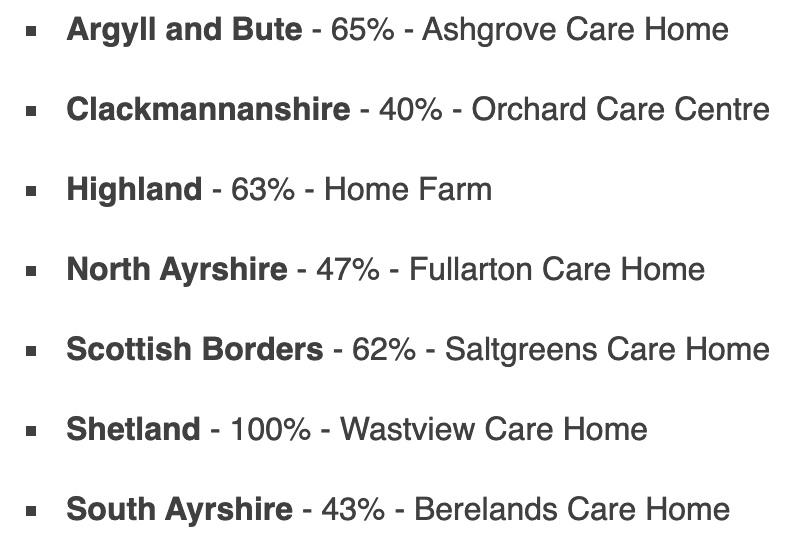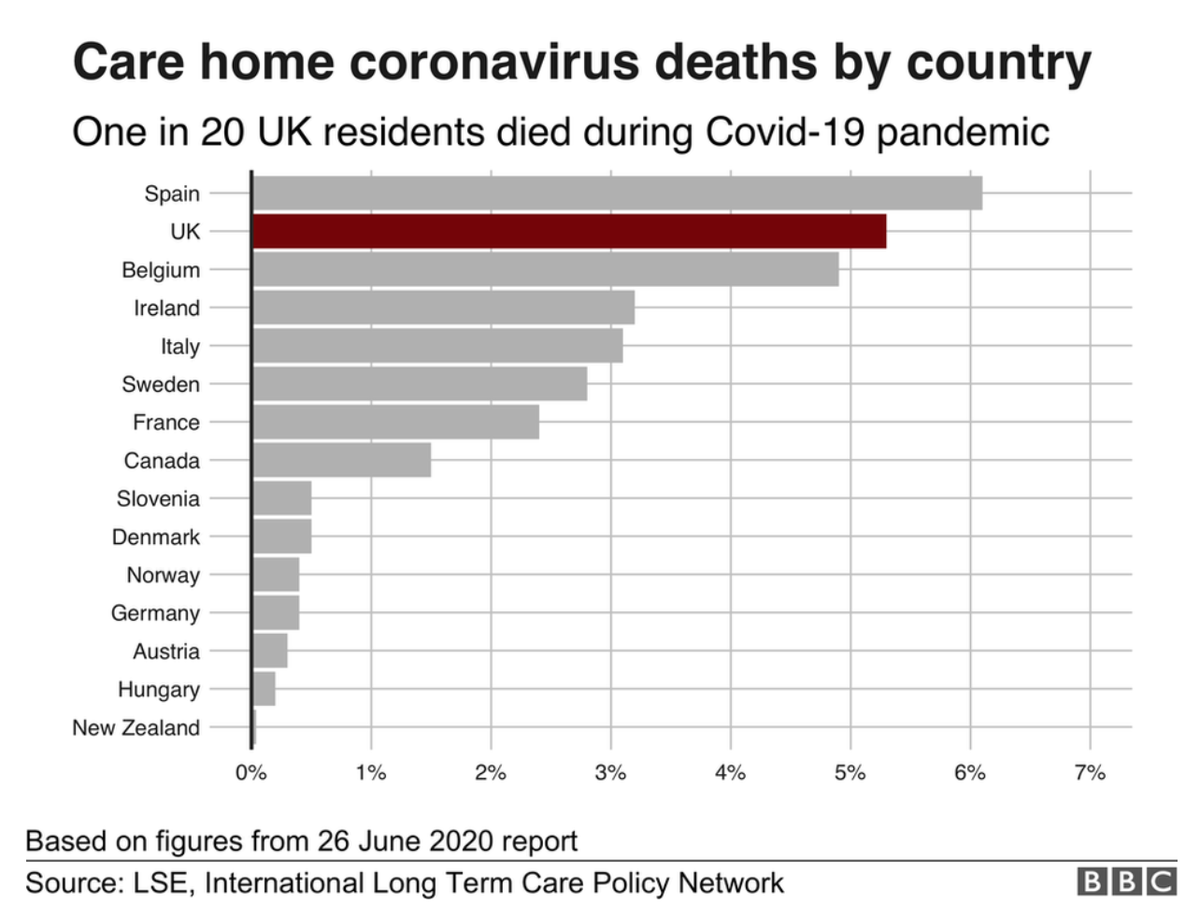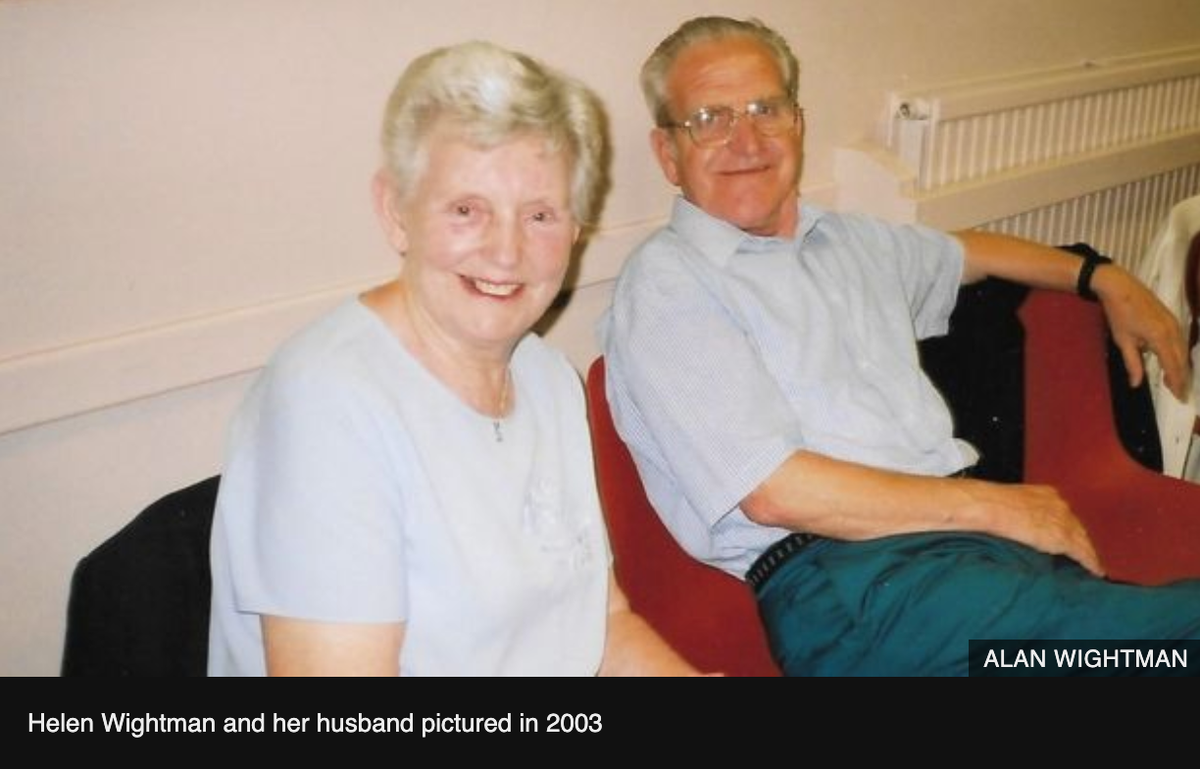THREAD: Care homes bore the brunt of the #coronavirus pandemic in Scotland + yet official stats don't tell us which homes/providers reported the most deaths. I set out to investigate and map all 1,950 deaths - what I found was a spectrum of transparency.
The first Alan Wightman knew about virus-related deaths in his mother's care home came from an unexpected phone call.
"Have you seen The Courier?" the home's deputy manager asked.
"Have you seen The Courier?" the home's deputy manager asked.
The local newspaper was reporting that an outbreak at Scoonie House in Fife had resulted in 16 positive cases, and 2 deaths.
They added: “Well, actually it’s now three”.
“If that article had not been published, they’d never have phoned me,” says Alan. “Their hand was forced”.
They added: “Well, actually it’s now three”.
“If that article had not been published, they’d never have phoned me,” says Alan. “Their hand was forced”.
That phone call came on 1 May and - just 5 days later - Alan’s 88-year-old mother Helen became another coronavirus fatality.
According to the Care Inspectorate - Scotland's regulatory body for the sector - care providers are under "no statutory obligation" to notify residents, or their families, of an outbreak in their homes.
And Caring Homes - the private company that runs Scoonie House - refused to confirm the number of #coronavirus-related deaths in the home.
Caring Homes - the company running the home - said its residents were an "absolute priority" and everything had been done to keep them well.
Caring Homes - the company running the home - said its residents were an "absolute priority" and everything had been done to keep them well.
It had "proactively" sourced the right PPE for staff, engaged in routine testing + stopped new admissions.
The company added: "We have sought to be transparent with relatives and they have received regular communications from our home manager and senior leadership team."
The company added: "We have sought to be transparent with relatives and they have received regular communications from our home manager and senior leadership team."
Alan doesn't dispute his mother's care and he was thankful for the regular updates he was given.
What he does question is how coronavirus still managed to take hold, despite the measures employed.
What he does question is how coronavirus still managed to take hold, despite the measures employed.
He showed me letters suggesting that testing wasn't in place until at least late April.
The home refused to comment on when it started to regularly started to test staff and residents.
The home refused to comment on when it started to regularly started to test staff and residents.
He also questions why Caring Homes won't make public its death numbers.
Alan's view is that care homes are "hiding, where they can, behind confidentiality".
But Caring Homes isn't the only provider reluctant to reveal how many fatalities could be attributed to the pandemic.
Alan's view is that care homes are "hiding, where they can, behind confidentiality".
But Caring Homes isn't the only provider reluctant to reveal how many fatalities could be attributed to the pandemic.
So, what do we know about deaths? Officially, there have been suspected cases in two-thirds of homes. And we know coronavirus has claimed slightly more lives in care homes (1,950) than in hospitals (1,945).
Data also reveals that since mid-March there's been 2,365 "excess deaths" in Scottish care homes.
Weekly figures published by National Records of Scotland - which include confirmed and suspected coronavirus deaths - show what the situation is at health board level.
Weekly figures published by National Records of Scotland - which include confirmed and suspected coronavirus deaths - show what the situation is at health board level.
But is it possible to map every single care home death by address and provider?
Over many weeks I sent hundreds of emails to the 1,080 public and private homes looking after Scotland's elderly.
Most declined, or didn't respond at all.
Over many weeks I sent hundreds of emails to the 1,080 public and private homes looking after Scotland's elderly.
Most declined, or didn't respond at all.
The Care Inspectorate and Scottish government also both refused to release a breakdown, with the former also denying an FOI request for the data.
Faced with very little official figures, I searched online news articles, obituaries, and death notices and contacted social media groups set up by those who had lost loved ones in care homes.
But despite casting a wide net, I could find only 93 care homes in which 588 residents had died - that's 30% of all the 1,950 confirmed and suspected elderly deaths.
https://docs.google.com/spreadsheets/d/1ipqNURvppd9JGW17H02xzbgl9ihe3Y3SS4oF38agcQ0/edit?usp=sharing
But many providers would not even confirm figures that had appeared in the media.
https://docs.google.com/spreadsheets/d/1ipqNURvppd9JGW17H02xzbgl9ihe3Y3SS4oF38agcQ0/edit?usp=sharing
But many providers would not even confirm figures that had appeared in the media.
For example, Advinia Care Homes Limited declined to reveal numbers despite FOI requests + news stories reporting at least 66 deaths in 5 of its homes.
It simply said it wouldn't release such data "out of respect to the families who have lost someone".
It simply said it wouldn't release such data "out of respect to the families who have lost someone".
Helen Wightman's son Alan says he is dismayed at the lack of openness, adding "they [the care homes] are not providing answers".
As well as private homes failing to release death figures - half a dozen local authorities have also declined to publish numbers.
As well as private homes failing to release death figures - half a dozen local authorities have also declined to publish numbers.
The media reported 15 deaths at council-run Crosslet House, but West Dunbartonshire said patient confidentiality meant it was "unable to confirm" fatalities.
Robert Kilgour - executive chairman of Renaissance Care - said councils should provide figures for deaths.
He said: "If they have nothing to hide then they have nothing to fear. There are no data protection issues at all. This is a smokescreen for them to hide behind."
He said: "If they have nothing to hide then they have nothing to fear. There are no data protection issues at all. This is a smokescreen for them to hide behind."
While weekly figures published by National Records of Scotland use council areas, they don't reveal which specific homes reported deaths.
Through my crowdsourced data I built maps highlighting possible virus hot spots in Renfrewshire and Edinburgh.
Through my crowdsourced data I built maps highlighting possible virus hot spots in Renfrewshire and Edinburgh.
The limited data set also allows us to calculate what percentage of deaths in a council area can be attributed to a single care home.
Analysis of global figures by academics at the London School of Economics (LSE) suggests care home residents were more likely to die of Covid-19 in the UK than in any of the other major European countries, apart from Spain.
The proportion of residents dying in UK homes was a 1/3 higher than in Ireland/Italy + 13 times higher than in Germany.
If we look at Scotland as an individual nation and use the LSE's analysis, the country's care homes would see 5% of deaths attributed to the pandemic.
If we look at Scotland as an individual nation and use the LSE's analysis, the country's care homes would see 5% of deaths attributed to the pandemic.
The report notes that "international comparisons are difficult" due to differences in testing; how deaths are recorded, and variations in the definition of "care home".
The Scot govt said the report uses a "snapshot day" + doesn't account for annual traffic in/out of homes.
The Scot govt said the report uses a "snapshot day" + doesn't account for annual traffic in/out of homes.
One of the report's authors, Dr David Henderson from Edinburgh Napier University, said nobody knows how many people in Scotland are in care homes at any given time and so "an accurate denominator is beyond us".
He said the "data gap" had been "cruelly exposed by the pandemic".
He said the "data gap" had been "cruelly exposed by the pandemic".
Scottish Health Secretary Jeane Freeman has said there should be a review of social care in Scotland in the wake of the pandemic, as it had "shone a light" on areas that needed to be improved ( https://www.bbc.co.uk/news/uk-scotland-52795993).
The gov't review has been welcomed by Alan Wightman who is still trying to piece together how his mother Helen contracted coronavirus.
He called the unwillingness of Scoonie House to divulge how many of its residents died from coronavirus "an absolute disgrace".
He called the unwillingness of Scoonie House to divulge how many of its residents died from coronavirus "an absolute disgrace".
"But the pressure's building," Alan said.
"None of them [governments and private care providers] want to give anything away in case it comes back to bite them".
"None of them [governments and private care providers] want to give anything away in case it comes back to bite them".

 Read on Twitter
Read on Twitter
